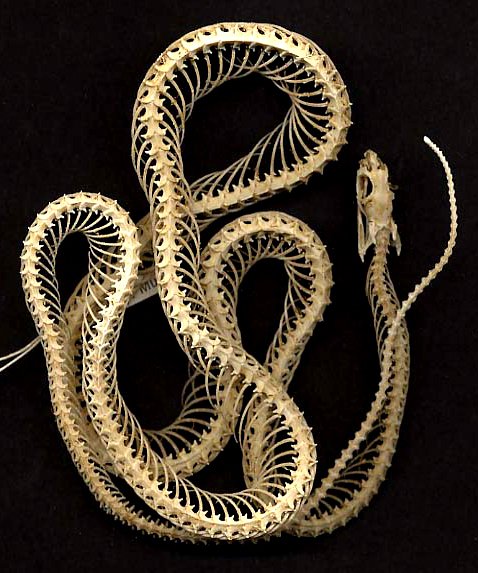Introduction
When it comes to venomous serpents, Australia is home to several of the most interesting and hazardous species in the world. Among these, the Tiger Snake stands apart not only for its potent venom however additionally for its appealing habits. Understanding the behavior of poisonous serpents like the Tiger Snake is vital for both wild animals enthusiasts and those residing in areas where these snakes exist. This write-up delves into numerous aspects of Tiger Serpent habits, habitat, identification, precaution, and first aid techniques in case of a serpent bite.
Understanding the Behavior of Venomous Snakes Like the Tiger Snake
The Tiger Snake, medically called Notechis scutatus, is notorious for its hostile nature when threatened. These snakes show a series of habits that can be rather various from their non-venomous counterparts.
Characteristics of Tiger Snakes
The Tiger Serpent is conveniently identifiable because of its unique bands or stripes that look like a tiger's markings. They can differ in color from yellowish-brown to dark olive or black. This coloration serves not just as camouflage but likewise as a caution signal to possible predators.
Adaptability to Environment
One impressive facet of their habits is their flexibility to different settings. Located primarily in coastal areas, marshes, and marshes across Australia and Tasmania, they can prosper in varied habitats consisting of city areas.
Hunting Techniques
Tiger Serpents are ambush predators mainly feeding upon fish, frogs, and little animals. They have eager sight and an intense feeling of scent which assists them in situating target effectively.
Venom Composition
Their poison consists of neurotoxins that affect the nerve system, bring about paralysis or fatality in smaller animals. For humans, immediate medical focus is crucial after a tiger serpent bite because of its potentially deadly effects.
Natural Habitat of Tiger Snakes
Preferred Locations
Understanding where these serpents live sheds light on their behavioral patterns. The tiger serpent habitat includes: Preventive Measures
- Coastal regions Swamps Grasslands Urban locations with plentiful water sources
Seasonal Movements
During warmer months, Tiger Snakes are more active as they indulge in sunlight or search for food. On the other hand, colder months see them pulling back into hibernation sites.

Are Tiger Snakes Venomous?
Yes! The inquiry "are tiger snakes poisonous?" frequently emerges amongst those not familiar with this types. Respiratory Support Their venom is considered one of the most dangerous among all serpent varieties worldwide.
Symptoms of a Tiger Snake Bite
If bitten by a tiger snake, signs may include:
- Localized pain Swelling at the bite site Nausea and vomiting Sweating and confusion
Immediate medical help is important as untreated bites can cause extreme wellness complications or perhaps death.

First Aid for Serpent Bites: Quick Feedback Guide
Knowing how to provide first aid for a snake bite can conserve a person's life. Right here's what you should do:
Step 1: Remain Calm
Keeping calmness aids reduce heart price which minimizes poison spread.
Step 2: Incapacitate the Influenced Area
Keep the impacted arm or leg still and below heart degree if possible.
Step 3: Call Emergency Services
Always look for expert medical assistance right away after a serpent bite.
First Aid for Serpent Bite Set Essentials
A well-appointed snake bite first aid kit ought to consist of:
- A compression bandage Antiseptic wipes A set of scissors A cold pack
Safety Safety measures: Protecting against Serpent Bites in Australia
Awareness Programs
Educating areas concerning neighborhood snake species and their actions can dramatically decrease encounters bring about bites.
Avoiding Hazardous Areas
Staying far from lengthy lawn during warmer months reduces contact with snakes that could be relaxing or hunting.
Common False impressions Regarding Tiger Snakes
Many individuals believe mistaken beliefs about the habits of tiger serpents cause unneeded fear. Below are some explanations:
snake bite first aid kitMyth 1: All Tigers Are Aggressive
Not all tiger snakes will show hostility if left uninterrupted; several prefer getting away instead of confrontation.

Myth 2: They Chase Humans
Tiger snakes do not proactively go after people; they might strike when they really feel endangered yet will usually pull back if provided space.
Conservation Initiatives Associated with Poisonous Snakes
Conservation efforts focus on enlightening areas about securing neighborhood wildlife while decreasing human-snake interactions.
Importance of Ecosystems
Understanding that venomous snakes play an essential function in maintaining eco-friendly balance assists foster recognition instead of concern in the direction of them.
FAQs Regarding Tiger Snakes
What must I do if I come across a tiger snake?- Maintain range and slowly retreat without unexpected movements.
- While attacks aren't exceptionally common due to awareness efforts, they still happen annually within Australia.
- Baby tiger snakes can supply full doses of poison regardless of being smaller; for this reason caution is suggested around them.
- They mainly eat frogs, fish, small creatures like rats, and other reptiles.
- It's illegal in many territories without proper licensing due to safety issues regarding their venom.
- Wear tough boots and remain on significant tracks; look prior to positioning hands or feet into concealed spaces like rocks or logs.
Conclusion
Understanding the habits of poisonous snakes like the Tiger Serpent not only enhances our knowledge but additionally advertises security awareness amongst those living near their environments. From acknowledging their features, recognizing emergency treatment methods following a bite, via engaging conservation efforts-- every aspect plays a necessary function in cultivating conjunction with these interesting reptiles while respecting their place within our ecosystem.
As we grow our understanding via education and experience, we add positively towards making sure both human security and wild animals conservation-- profiting all celebrations involved!